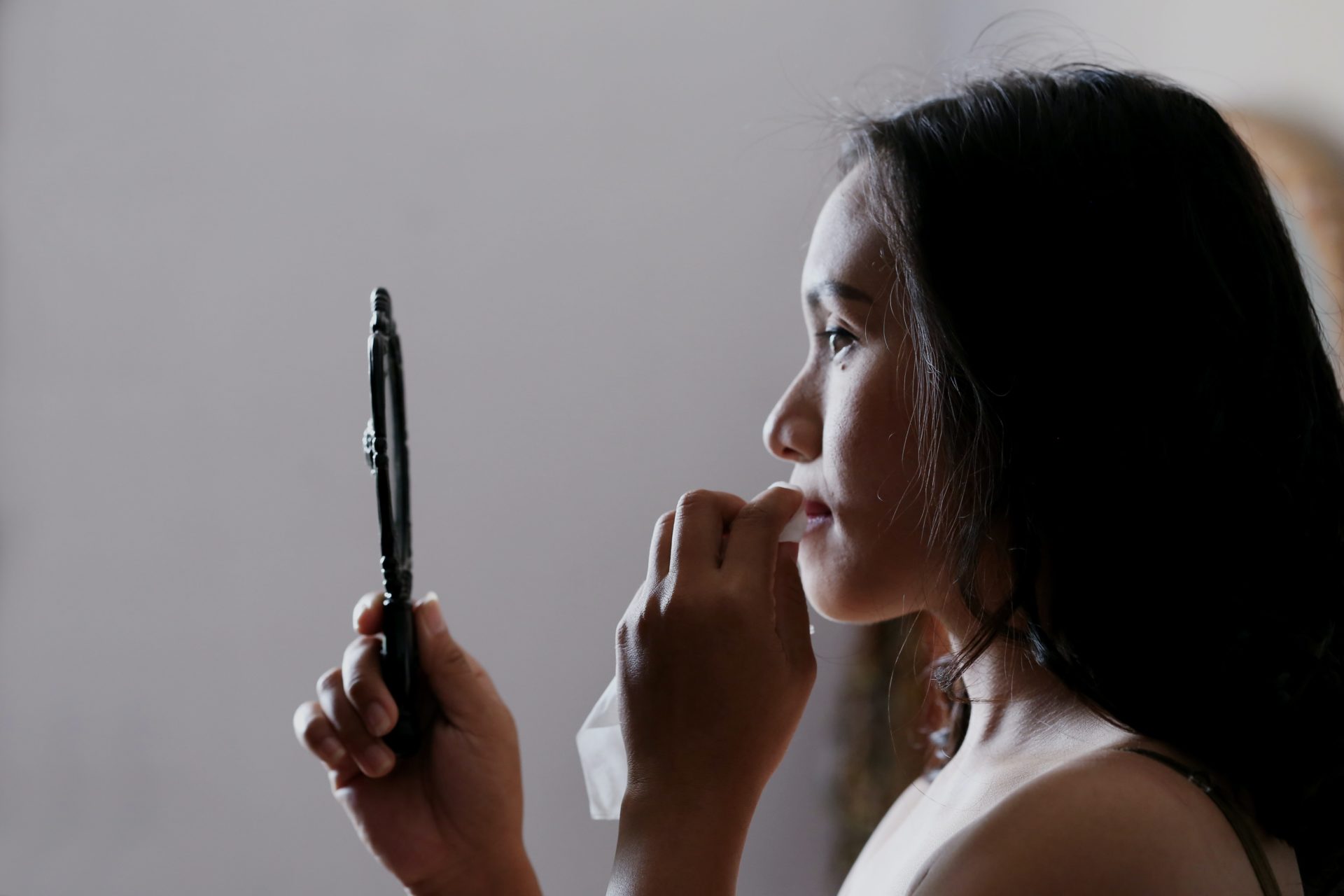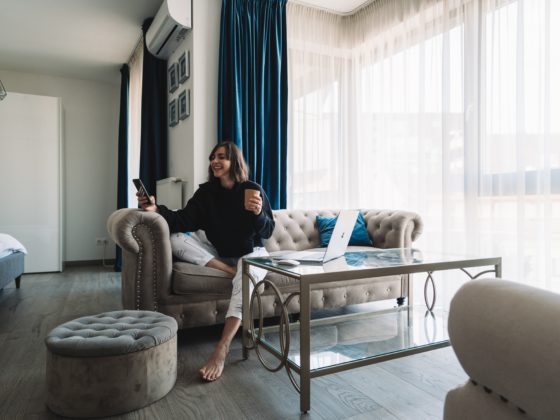We have all heard that saying that to be loved in a relationship, you need to first love yourself, and admittedly, that is a hard one for me. First and most importantly, as a completely average person of weight and height, I struggle with the idea of articulating myself in an article like this. At the risk of not recognizing the privilege of being average, my ability to walk around unnoticed, shop wherever I want, eat whatever I want without people assuming I shouldn’t be eating that burger or chocolate bar.
Data summarized by the National Organization for Women Foundation reveals that at age thirteen, 53% of American girls are “unhappy with their bodies.” and 46% of 9-11 year-olds are “sometimes” or “very often” on diets.
This statistic is no surprise to me, and it has me reflecting back to when I was a teenager during the awful era where zippers on jeans were barely existent and since my hips (my curvy, childbearing hips) were the first thing to develop when I hit puberty, I had a constant muffin top for most of high school career. It also didn’t help that my father was merciless with sharing how unattractive he thought my body was, projecting his own distortions about what women should look like onto me.
When each new year passes, many of us hit reset, reflect and put together a list of lofty, oftentimes unrealistic, goals we wish to so badly accomplish during the year ahead. Today, I’m going to discuss why I have decided to drop the resolutions and call them determinations instead and focus on reframing my love for myself and my body.
Can you remember the first time you looked in the mirror and felt self-conscious about your appearance? I certainly can. Maybe it was our parents or friends’ voices that made us question our reflection. Maybe it was the latest music video or TV show, or maybe it was a simple trip to the mall to pick out a new outfit for school.
These images, comments and societal pressures, have led to a series of questionable choices in managing my body. From counting calories, eating way too many carrots as a substitute for a balanced lunch, and anxiously recording the calories burned on my Fitbit to see if I could have a cookie after dinner.
Eventually, through a series of reasons not exclusive to my diet, my body changed to a size 4, losing the curvy figure I had come to hate. At one point, I was 108 pounds and my friends started asking me if I was okay. Despite my anxiety being debilitating, strangers seemingly anywhere would tell me that I could fit into anything because of how tiny I was. I never wanted or asked for these comments. Unsurprisingly now that I have gained fifty pounds, the “compliments” have all but evaporated.
The ironic thing about that time in my life is that I remember looking in the mirror at how thin my arms were and how weak and unfeminine I felt. I felt boyish in my dresses as there was no fat on my hips. Despite having the flat-ish stomach that the media had told me I always wanted, I felt jealous when I looked at women with full bodies as they were an open canvas for the many tattoos I dreamt about having. Ultimately, I realized no matter what I looked liked or weighed, I always found a way to critique myself.
A therapist said something really helpful recently – they said these distortions about my body weren’t mine. Whether they be the media’s or my father’s, they come from an outside source and that the good news is, I can learn to have control over them.
Where Do New Year’s Determinations Fit In?
2020 has been a dumpster-fire of a year. Many people, including myself won’t be clinking champagne at midnight singing Auld Lang Syne with close friends and family. I know many of us can’t wait for 2020 to be over and the isolation of Covid-19 has given me more time to think about what I would like to see be different next year.
I have personally never liked the idea of New Year’s resolutions, because the bar is always set too high and by February we often have forgotten that we set them in the first place. They can fail because we tend to create unrealistic plans to achieve them and start feeling bad about ourselves when we don’t accomplish them. Rather, we should equip ourselves with the right tools and mindset, rather than a vague and overarching goal with no steps on how we will go about achieving them.
Saaed Jones penned a beautiful essay on why he prefers New Years Determinations in his essay We Are A Determined Household, with my favorite quote being:
We greet each new year, hoping for the best, though – in truth — “the best” might not be in the cards for us. I watched (my mom) proudly embrace the odds and stakes as she announced her intention to win anyway. It was a profound lesson.
Here are my 2021 pronunciations of odds and stakes. Here is to admitting that I struggle to find self-love and acceptance in this body. This able body, this healthy body, this body that allows me to explore and grow, this is a body that I should be grateful for, that can’t seem to accept now that I am not a size 4, or maybe one that I could never accept in the first place.
This commercial does a great job of showing the ability of ones body. Get the box of tissues ready: Take Care of Yourself
My 2021 New Years Determinations:
- I am determined this year to focus less on my physical appearance and focus on what my body can do, rather than what it looks like.
- I am determined this year to affirm myself and bat away negative emotions and reframe them positive self talk.
- I am determined to be kinder to myself, and resolve that it is OK if I slip up sometimes.
Reframing Negative Self-Talk
If I gave you thirty seconds to think of ten ways to make you feel bad about yourself and at the end, you’d win a million dollars, it would be pretty easy. If I gave you the same incentive, but asked you to think of ten ways to make yourself feel better in thirty seconds, it is much more challenging. Every time you start to have destructive self-talk, make a determination to catch yourself, and instead say something kind. Despite learning this practice in therapy almost three years ago, I still find it awkward to speak (and write) nice things to myself, even though I find it easy to tear myself down.
Here are some phrases I say to reframe negative self-talk.
- I will be kind to myself.
- I will love myself.
- I am enough.
- I am more than my appearance.
- My body is not the most important or interesting thing about me.
- I am grateful for all the things my body allows me to do.
Stop commenting on other people’s bodies is the path to stop ruminating about yours
My husband was very confused when I confessed that I care more about what other women think about my appearance than what he thinks. The root of my security is comparison because when it comes down to it, I want to be that girl, or that woman that walks by you, and you think to yourself if only I looked like her.
You never know what someone is going through and what their inner dialogue sounds like. You’ll never intentionally want someone to feel bad about themselves based on your comments, no matter if you think they are positive or affirming.
When I gained weight and people told me I looked healthy, I thought yes, but I want to be skinny. I know we love to lift up our friends, but practicing this fosters an attitude where we pay less attention to what people look like and focus on who they are. The best part is, when you stop paying so much attention to other people, it leaves you more room to stop comparing yourself to them.
Learning to appreciate all the things my body allows me to do
One of the best ways to reframe your thoughts is to get out of your head. The next time you start to ruminate, try to do something that requires your attention. Go for a walk, do a crossword puzzle, pick up a new hobby, like knitting! The best way to stop obsessing about something is to occupy your mind with something else. Learning to be aware of when you start to ruminate and then making a change is a very important and healthy coping style.
When I get overwhelmed by negative self-talk, I remind myself why I should be caring at all? I exercise, I watch what I eat, I have this incredible, alive and energetic body. This body is healthy, a body that allows me to love, play, write, work, be active, climb mountains, swim in lakes, work on my patio, create and just be. Is my body the most remarkable thing I can contribute to the world? Is my talent any less because my hips are full and round again?
Stop in the name of (self) love!
“You should know you’re beautiful just the way you are and you don’t have to change a thing. The world could change its heart.” – Alessia Cara
Learning to have a healthy relationship with your body, is a journey at which no endpoint exists. Our body constantly changes, through childbirth, illness, injury a pandemic, age and just life. As our physical appearance changes, we find new ways to be critical of ourselves, many of which are out of our control. We do however, have power over our thoughts and with a little bit of practice and a determined attitude, we can learn to bat away our ruminations, and find confidence and joy in ourselves.
SUMMER 2018
SUMMER 2020 – happy & healthy
Cover Photo by Septian simon on Unsplash











1 comment
Hi Jasmin!
It was really nice to read your article. I totally agree about that we should stop watching our body in the way of people around us are watching it. Let’s open our mind, not other’s one. Especially if it concerne OUR body.
Another thing. I broke my legh some months ago. I just realized then that how i was lucky to have health. My legh is fine now. But so much people have health issues… and for some of them… it’s for life…
Wish you to keep your beautiful smile for 2021! I will try to keep mine also.
Thanks again,
Jessa